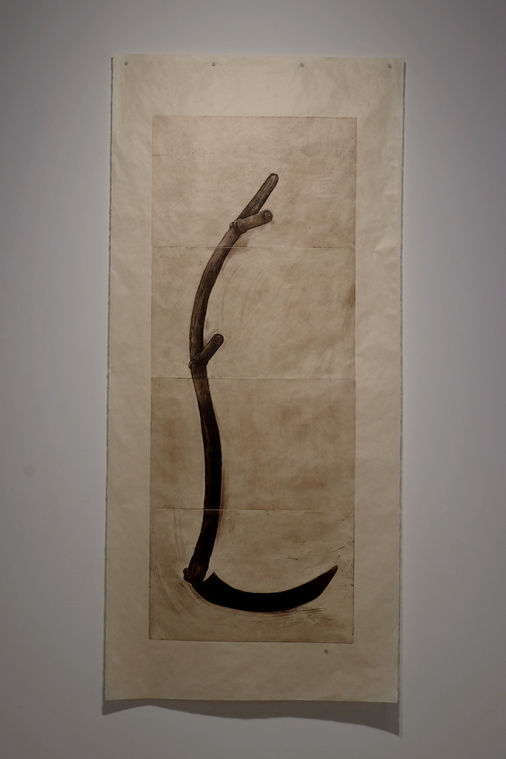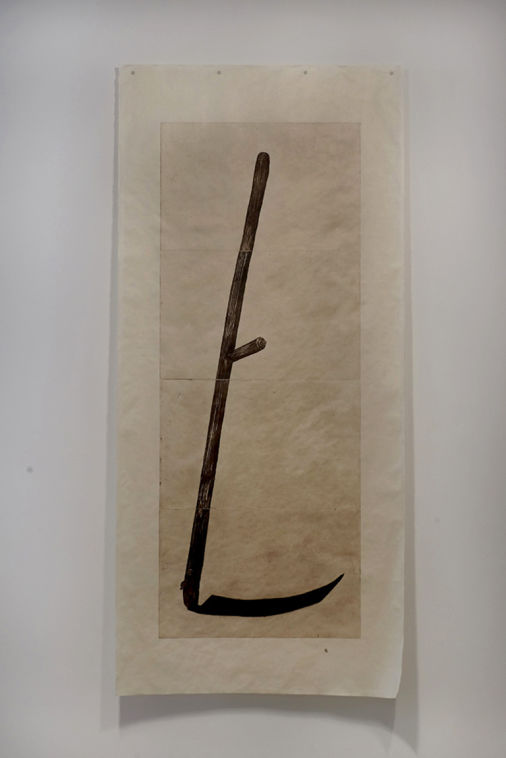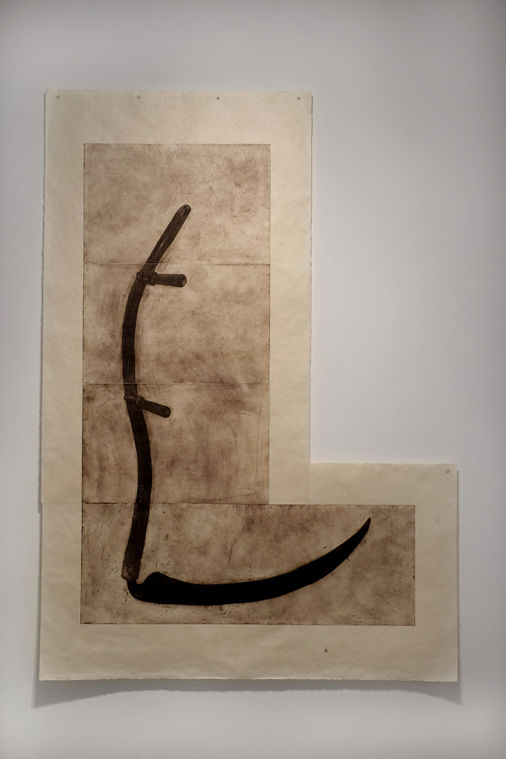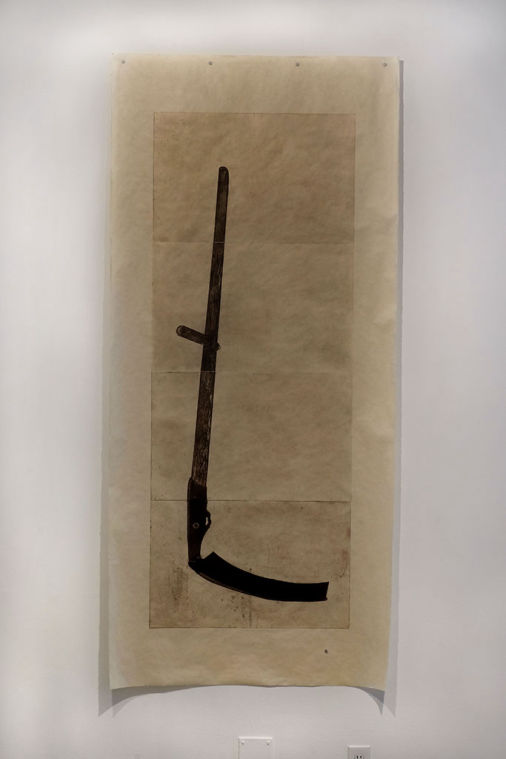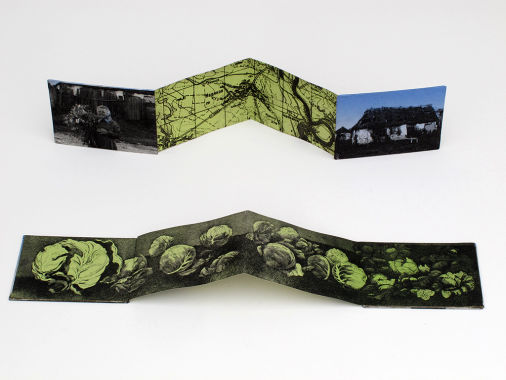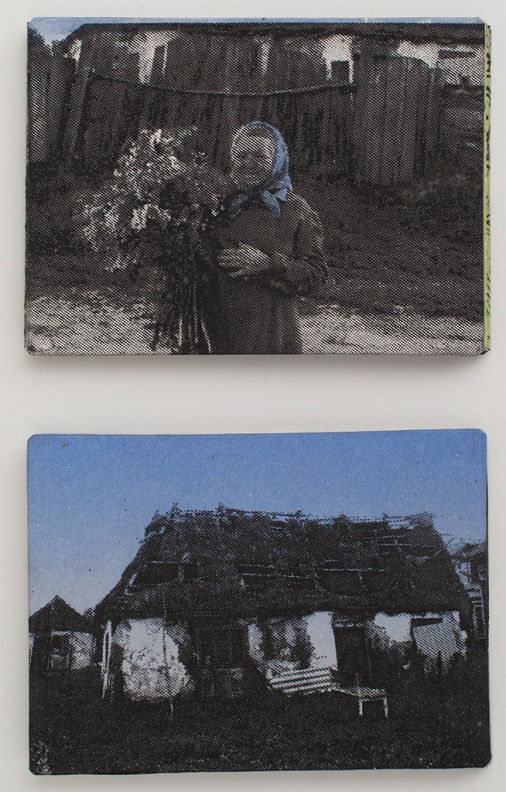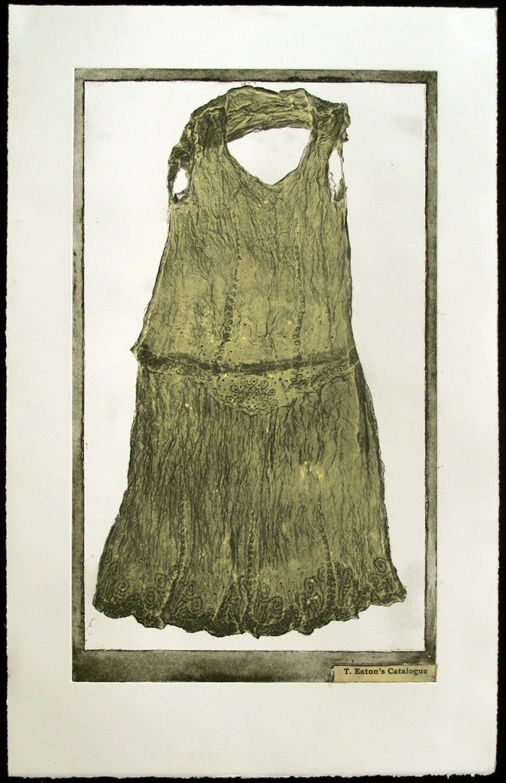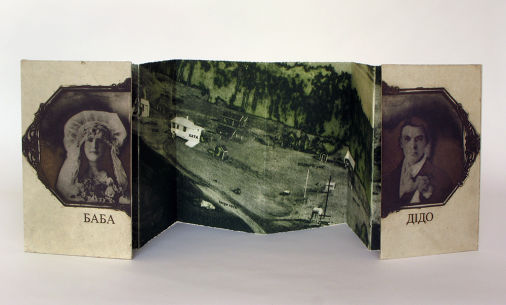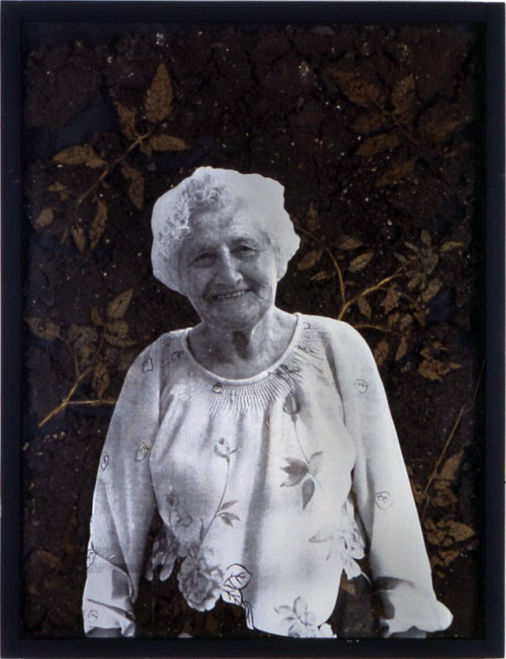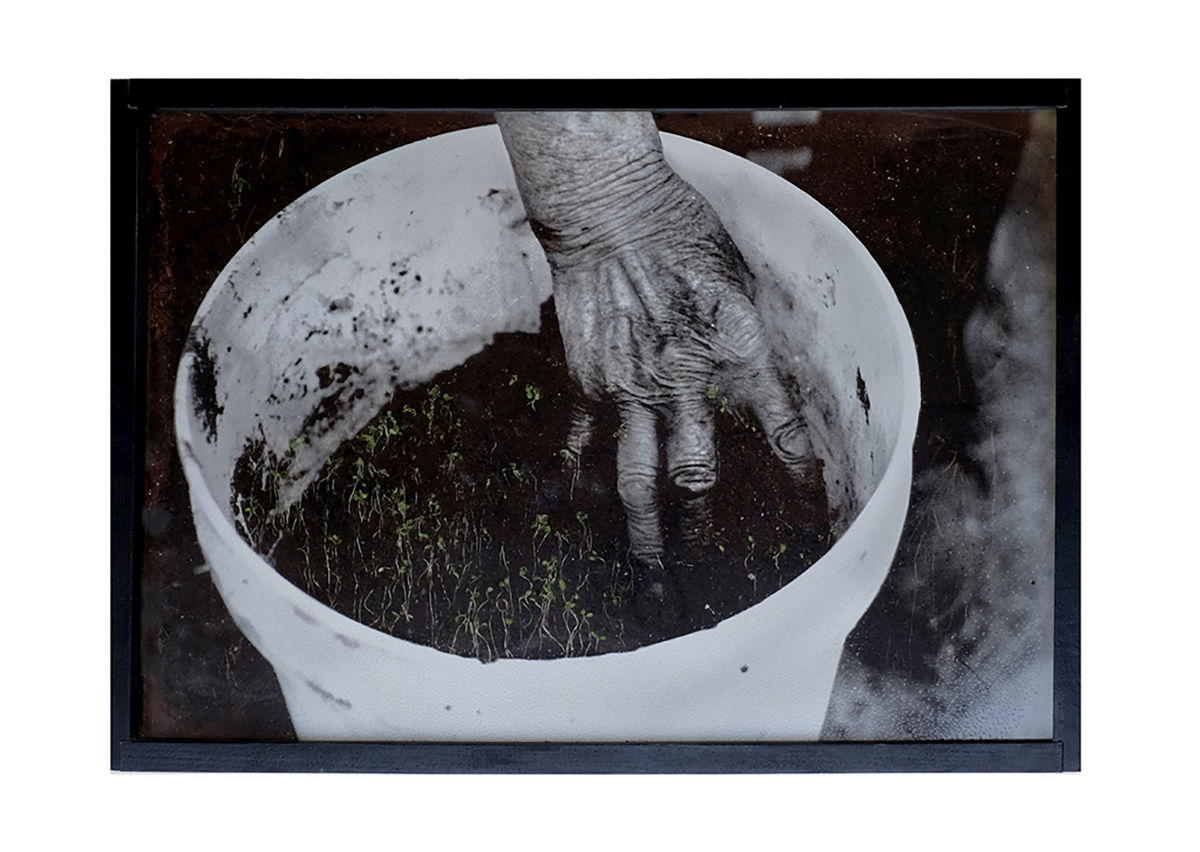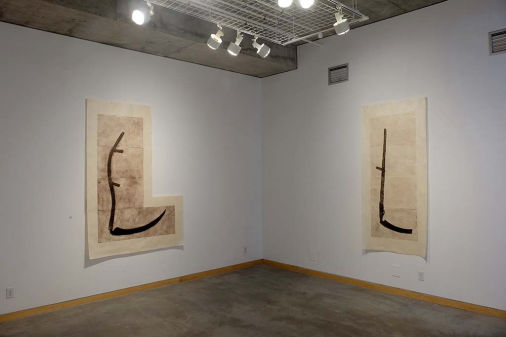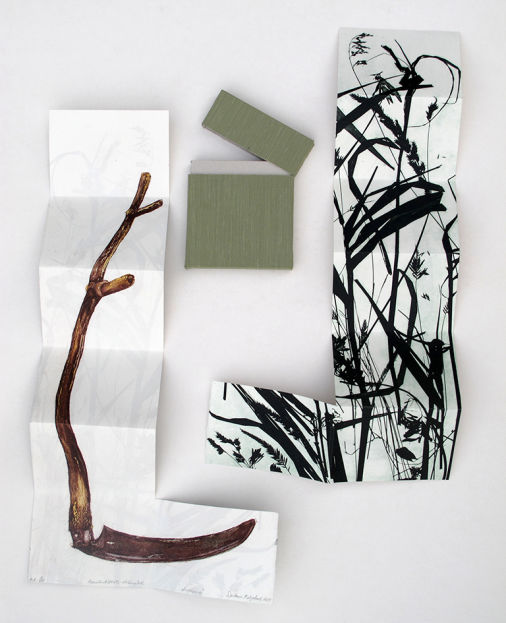Darlene Kalynka
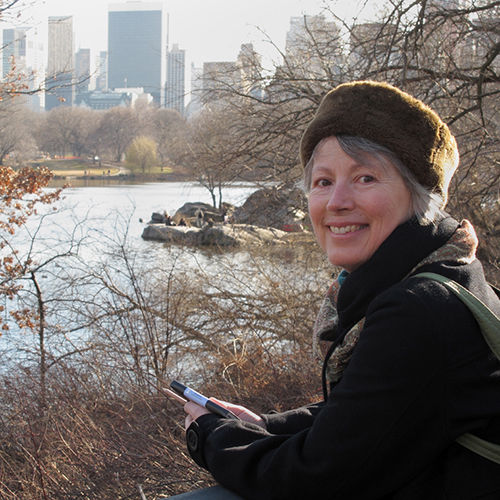
Bio
Born in Rosthern, Saskatchewan, Canada, Darlene Kalynka was raised on a farm and is of Ukrainian descent — that background informing the thematic content of her artworks. She is a print-based artist, primarily pursuing the mediums of etching and screen-printing. In the last few years Darlene has worked on large copper plate etchings of farm implements, scythes, to explore agrarian culture and family relationships. In her most recent body of artworks, she explores narratives of family history and memory, of the women in her family who harvested the fruits of their own labour.
Darlene received her BFA from the University of Alberta in Edmonton and her MFA from Concordia University in Montreal. She lives in Kamloops, British Columbia where she is an Associate Professor teaching printmaking at Thompson Rivers University — including a course on artists’ books: Make, Print and Bind.
Darlene’s recent solo exhibitions were held in 2019, at Remarque / New Grounds in Albuquerque, New Mexico and at the Kamloops Art Gallery. Recent group exhibitions include: Sense of Place II, Imprint 10, Salamanca Spain (travelling exhibition); and Ambos Lados Print Exchange (invitational travelling exhibition), Argos Studio/Gallery, Santa Fe, NM.; inclusion in Monumental Ideas in Miniature Books II and III (travelling exhibition: Spain, USA, and Asia). Darlene has also exhibited in the Trilateral Print Exchange: Re-Identification in Utrecht, Netherlands, Yokohama, Japan and Vancouver, Canada.
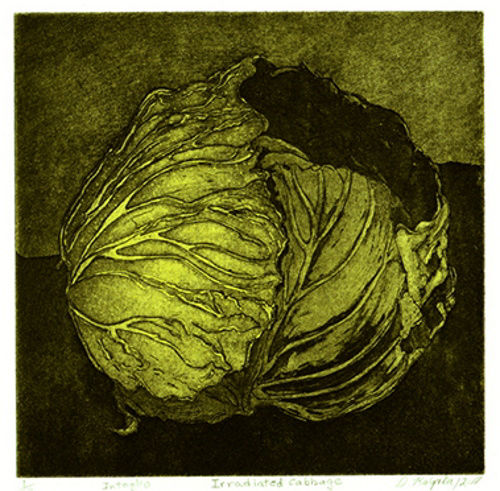
Artist Statement
Through the printmaking mediums of etching, intaglio and screen-printing, through such closely related forms as artist’s books and in the occasional use of more experimental forms, I explore imagery of an autobiographical nature that sources fragmented memories of living in a rural setting. There is a romanticised notion towards rural lifestyles and a purity that can be related to a cleaner way of living in the environment. Such imagery in my artwork, of aerial views of farms, of produce or of the hand-implements of agriculture, speaks to alternatives to powered vehicles or gas lawn mowers. Coming from a farm family I understand the complex relationship between such romantic longing and the realities of the ever-increasing expansion beyond the family farm and mechanisation of farming.
My interest in rural agrarian culture and my Ukrainian heritage is based in peasant iconography. In artworks such as the etching Irradiated Cabbage and the artist’s book Travelling in Ukraine, I use gardening and food imagery – something as simple as a cabbage used in cabbage rolls can be aesthetized and made beautiful. Through these and related artworks I ask such questions as: “what is hard, physical work?” and “why do we have a longing for an uncomplicated lifestyle when it comes to living and observing a rural landscape?". General interests in cultural ethnography, memory, family history or family stories, food and garden imagery are recurrent in these artworks. Travelling in Ukraine depicts a woman that I met in the Ukrainian village of Ivankiev, where my grandfather emigrated from in 1903. She is harvesting jasmine leaves for drying and selling in a larger city. A patch of cabbages in a farm field fills the other side of this accordion book.
The scythe is a tool, an object of agrarian labour. Romantic imagery in art and literature of cutting hay in the steppes of eastern Europe is brought to the history of my own family in my most recent work, Four Oldest Daughters. In these large-scale etchings life-sized representations of scythes stand-in metaphorically for four women in my family that were oldest daughters, including myself – four generations of women from agricultural backgrounds, each of whom has encouraged a strong work ethic. I remember my paternal grandmother using one of these scythes with expertise when cutting tall grasses in our families’ farmyards north of Saskatoon – a part of her agrarian cultural background experienced in the Ukraine. As oldest daughters my mother Stella, both of my grandmothers, as well as myself, were expected to look after younger members of the family and do the chores on the farm. At times many such oldest daughters were expected to leave school early to contribute to the family farm. In this body of work I am celebrating and honoring women who gave up their education and worked so hard to support their parents and younger siblings? I have included myself in this series of scythe prints as a metaphorical stand-in because I am a composite of these three women.
Image - Irradiated Cabbage (2017) Intaglio/relief
